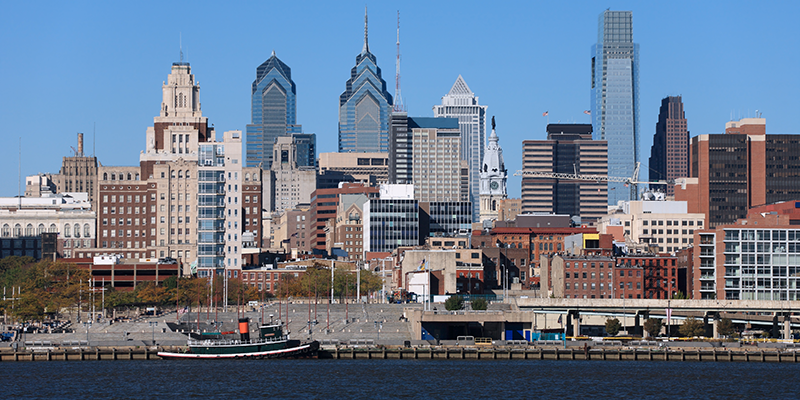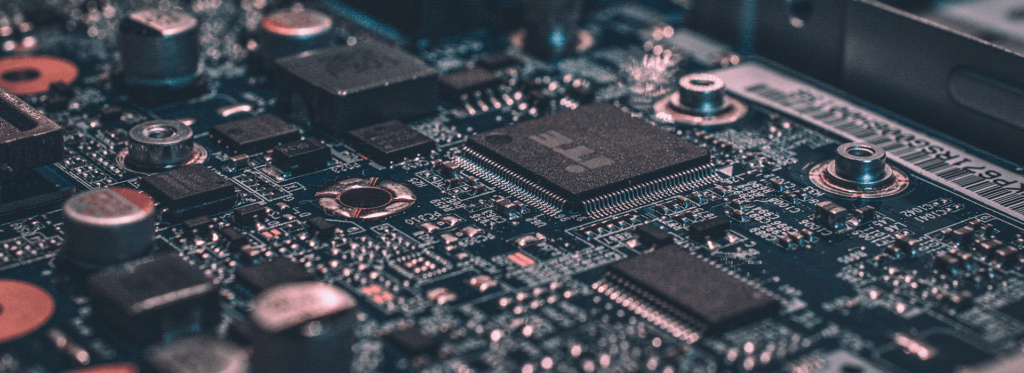Innovation Districts: Opportunity is Knocking

Pennsylvania is growing into a tech titan, with specializations in robotics, autonomous vehicles, and — as I wrote last month — software and game development, among other areas of expertise. Everywhere you look, there’s evidence that Pennsylvania is transforming into something more than the sum of its parts.
If you examine the driving force behind Pennsylvania’s growth in the technology sector, you’ll see it’s closely linked to our visionary and inventive workforce and their legendary can-do spirit. Recent research by the Brookings Institution quantified these traits by demonstrating how some of our most active regional hubs are creating a perfect mix of environment and resources to inspire and commercialize innovation. It also coined a term for these centers of creativity: innovation districts.
The Brookings Institution characterizes these innovation districts as urban models for innovation and place-making: “These districts are…geographic areas where leading-edge anchor institutions and companies cluster and connect with startups, business incubators, and accelerators.” In innovation districts, one will find research-oriented institutions (often part of a robust higher-education ecosystem), high-growth companies, and tech and creative startups in vibrant amenity-rich residential and commercial environments.
As part of their research on innovation districts and best practices, the Brookings Institution has focused on Philadelphia and Pittsburgh as cities with two of the country’s top innovation districts. Brookings conducted two 18-month studies on the innovation districts in each city, releasing their findings this year with Philadelphia’s report published in May 2017 and Pittsburgh’s in September 2017.
Philadelphia
According to the Brookings Institution, Philadelphia has a critical mass of assets that few other urban centers can claim. Its combined resources around the eds and meds sector have made the region a national leader in life sciences and health care technologies — including genetics, therapeutics, clinical trials, and health informatics. Brookings reports that Philadelphia’s innovation district receives $1 billion in federal research dollars each year, and has a higher concentration of public R&D than any other location of its size (outside of Boston). Additionally, 74 percent of Philadelphia’s university research expenditures are concentrated in the district — consolidating the city’s leadership role in many fields of research. Geographically, University City and the western part of Center City form the core of Philadelphia’s innovation district, with newer hubs emerging at the Navy Yard, N3rd (Nerd) Street, and around Temple University. Philadelphia’s innovation institutions and clusters of global research leaders are helping to attract and grow new tech clusters.
The report suggests that in order to continue this trend, Philadelphia leaders should work together to increase inclusivity and diversity of the workforce in their innovation district, forge stronger connections — including transportation networks — between other areas of the city and the larger region, and coordinate to strengthen the region’s entrepreneurial ecosystem and high-growth tech industries. Combined with the existing assets offered within Philadelphia’s innovation district — good transit, walkability, attractive residential and commercial properties, anchor research institutions, employers, and more — coordinated efforts like these help the city continue to strengthen and grow its tech sector.
Pittsburgh
The most recent Brookings Institution innovation district report focuses on Pittsburgh, and highlights the city’s technology-intensive advanced manufacturing industry as the standout cluster. Pittsburgh originally flourished because of its competitive combination of river access and raw natural resources, but the Pittsburgh of today has added high-skilled workers and world-class research institutions to its mix of advantages — helping the region’s manufacturing grow and evolve.
Indeed, the report indicates that Pittsburgh’s advanced manufacturing clusters represent both critical high-value firms and broad employment opportunities — and manufacturing productivity is seven percent higher than the national average. The manufacturing industry is being fed by the high level of tech investment in the region, and access to world-class engineering and computer talent.
The Brookings Institution also notes that Pittsburgh has become a hotbed of domestic direct investment from tech companies seeking access to the high-end engineering and computer talent being produced by schools in the region. The report concludes that a university-led collaboration to boost the city’s innovation ecosystem could help Pittsburgh compete on the global scale and establish it as a world-class hub linking research, technology, and entrepreneurship with job growth.
Erie
In August, my colleague Deputy Secretary Sheri Collins wrote about a few of Pennsylvania’s up-and-coming cities for tech startups — a roundup which included Erie, Pennsylvania. The community, civic, academic, and business leaders in Erie are taking a page from Philadelphia and Pittsburgh’s playbooks and establishing their own innovation district in downtown Erie.
Mercyhurst University is anchoring Erie’s developing innovation district, which will focus on safety and security. In 2016, the university received a $4 million Shaping Tomorrow grant from the Erie Community Foundation. Along with several corporate partners, Mercyhurst University will be executing joint projects related to safety and security, with a particular concentration on the fields of data science and cybersecurity — two critical industries that are increasingly important as we increase our reliance on technology.
Innovation is taking shape in many ways across the state — and I am proud to see how Philadelphia, Pittsburgh, Erie, and our other tech cities rise to the challenge. Pennsylvania continues to forge ahead, doing what it has always done best: providing fertile ground for original thought, groundbreaking invention, and critical problem-solving. From the American Revolution to the Industrial Revolution to present day, we’ve built a reputation for being innovators. I’m eager to see what revolutionary ideas we’ll come up with next.
To stay up-to-date with Pennsylvania news, follow us on Twitter, Facebook, and LinkedIn; and become a Keystone Ally to help spread #PAProud stories across your social media channels.

Neil Weaver has two decades of experience in non-profit and government management, operations, and communications. During his career, Neil has served in executive management at both the Pennsylvania Department of Community and Economic Development and the Department of Environmental Protection. In his current role as Acting Secretary at DCED, Neil functions as the chief executive of an agency that is responsible for administering grants, loans and tax credits that spur economic growth, community revitalization, and job creation throughout the state by providing strategic technical assistance, training, and financial resources to help our communities and industries flourish.





